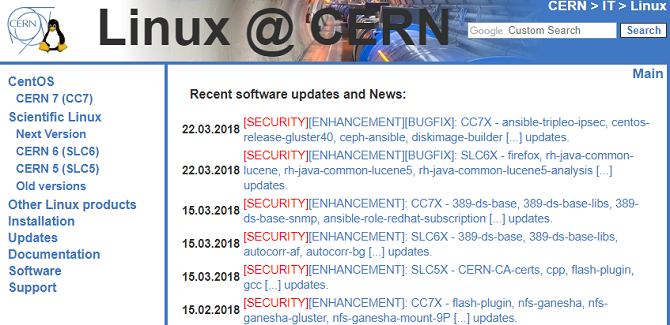
Breaking News
 Engineered backdoors in technology, have given intelligence agencies unfettered powers.
Engineered backdoors in technology, have given intelligence agencies unfettered powers.
 AI-Powered Robots Plant Trees in China's Deserts
AI-Powered Robots Plant Trees in China's Deserts
 Judge Temporarily Blocks DOJ From Using Evidence Proving James Comey's Guilt
Judge Temporarily Blocks DOJ From Using Evidence Proving James Comey's Guilt
 Offer Royale: Paramount-Netflix Bidding War For Warner Bros Heats Up In A Blockbuster Showdown
Offer Royale: Paramount-Netflix Bidding War For Warner Bros Heats Up In A Blockbuster Showdown
Top Tech News
 Build a Greenhouse HEATER that Lasts 10-15 DAYS!
Build a Greenhouse HEATER that Lasts 10-15 DAYS!
 Look at the genius idea he came up with using this tank that nobody wanted
Look at the genius idea he came up with using this tank that nobody wanted
 Latest Comet 3I Atlas Anomolies Like the Impossible 600,000 Mile Long Sunward Tail
Latest Comet 3I Atlas Anomolies Like the Impossible 600,000 Mile Long Sunward Tail
 Tesla Just Opened Its Biggest Supercharger Station Ever--And It's Powered By Solar And Batteries
Tesla Just Opened Its Biggest Supercharger Station Ever--And It's Powered By Solar And Batteries
 Your body already knows how to regrow limbs. We just haven't figured out how to turn it on yet.
Your body already knows how to regrow limbs. We just haven't figured out how to turn it on yet.
 We've wiretapped the gut-brain hotline to decode signals driving disease
We've wiretapped the gut-brain hotline to decode signals driving disease
 3D-printable concrete alternative hardens in three days, not four weeks
3D-printable concrete alternative hardens in three days, not four weeks
 Could satellite-beaming planes and airships make SpaceX's Starlink obsolete?
Could satellite-beaming planes and airships make SpaceX's Starlink obsolete?
9 Ways Linux Is Taking Over the World

Linux doesn't only run on home computers. You will also find it in far more exciting devices and projects. It's particularly common where the proprietary nature of Windows and macOS is not suitable.
Let's take a closer look who uses Linux and consider some of most unusual ways people and companies around the world.
1. Large Hadron Collider

The Large Hadron Collider (LHC) is the world's largest and most powerful particle accelerator. It's a 17-mile long circular tube buried 175 meters below the French-Swiss border near Geneva.
It's common knowledge that the facility has been a resounding success from a scientific perspective. But the LHC is also a computing miracle.
In its first 12 months of operation, the LHC produced more than 50 petabytes of data. The team needed 170 computing centers across 42 countries to analyze it all in a timely manner. It is the largest distributed computing grid in the world.
Linux runs both the LHC itself and the associated data centers. To be more precise, the LHC uses a modified version of Scientific Linux.
2. Air Traffic Control in the United States
In 2006, the Federal Aviation Administration (FAA) migrated its entire computing operation over to Linux, including all the machines that track planes while they're on radar.
The organization moved from a proprietary form of Unix to Red Hat Enterprise Linux.
The decision was part of a wider FAA decision to move away from proprietary software and instead focus on apps using Java, web services, open-source software, and Oracle products.
Fast-forward to today, and Linux is responsible for the safety of the 8,000 planes that are in the sky above the US at any given time.
3. Putting Milk on Your Cornflakes

 First totally synthetic human brain model has been realized
First totally synthetic human brain model has been realized Mach-23 potato gun to shoot satellites into space
Mach-23 potato gun to shoot satellites into space

